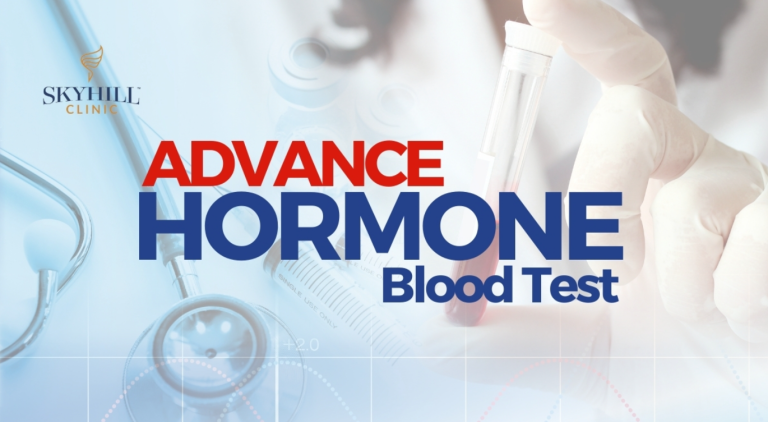Your heart is more than a tireless pump—it’s a dynamic organ constantly responding to chemical signals from your endocrine system. Hormones don’t just influence your mood or metabolism; they play a pivotal role in cardiovascular health. From adrenaline’s quick burst of energy to estrogen’s long-term protective effects, these messengers help determine your heart’s rhythm, blood pressure, and overall performance.
Adrenaline: The Rapid Responder Heart’s Performance
Adrenaline, also known as epinephrine, is secreted by your adrenal glands during moments of stress or excitement. Its release triggers the classic “fight or flight” response:
- Increased Heart Rate: Adrenaline accelerates your heartbeat to deliver oxygen-rich blood to muscles quickly.
- Raised Blood Pressure: Blood vessels constrict to improve circulation to vital organs.
- Boosted Energy Supply: It stimulates glucose release for immediate energy.
While occasional adrenaline surges are beneficial, chronic stress can keep adrenaline elevated, straining the heart over time. Deep breathing, mindfulness, or light exercise can help modulate adrenaline spikes and protect cardiovascular function.
Cortisol: Managing Long-Term Stress Heart’s Performance
Cortisol is another adrenal hormone, but unlike adrenaline’s quick bursts, cortisol works on a longer timeline. It helps regulate blood pressure, glucose metabolism, and inflammation. However, when cortisol remains high for extended periods—due to overwork, sleep deprivation, or emotional stress—it can:
- Increase blood pressure persistently.
- Promote abdominal fat, which is linked to heart disease.
- Disrupt normal blood sugar regulation.
Balancing cortisol isn’t about avoiding stress entirely but managing it effectively through proper rest, balanced nutrition, and stress-reducing practices like yoga or meditation.
Estrogen: A Protective Force for the Heart Heart’s Performance
Estrogen, primarily associated with female reproductive health, also benefits the cardiovascular system. It helps maintain flexible blood vessels, supports healthy cholesterol levels, and reduces inflammation. Before menopause, women generally have a lower risk of heart disease compared to men—thanks in part to estrogen’s protective effects. After menopause, when estrogen levels drop, the risk of cardiovascular issues rises, underscoring the importance of lifestyle adjustments and regular checkups during this stage of life.
Testosterone: Not Just a Male Hormone Heart’s Performance
Testosterone, present in both men and women, influences cardiovascular performance by maintaining healthy blood vessels, muscle mass, and red blood cell production. Too little testosterone may contribute to fatigue and reduced circulation efficiency, while excessively high levels (especially from synthetic use) can increase the risk of hypertension or blood clots. Athletes and aging adults alike should approach testosterone health with care, consulting medical professionals when symptoms of imbalance appear.
Testosteron Rendah pada Lelaki: Tanda Awal Masalah Jantung?
Thyroid Hormones: Regulating Heart Rhythm
Your thyroid gland produces hormones (T3 and T4) that control metabolism and, indirectly, heart function. Overactive thyroid (hyperthyroidism) can cause rapid heartbeats or palpitations, while an underactive thyroid (hypothyroidism) may slow heart rate and lead to fluid retention or elevated cholesterol. Routine thyroid testing is a key step for anyone experiencing unexplained heart symptoms.
Insulin: Connecting Metabolism and Cardiac Health
Insulin regulates blood sugar, but its role extends to heart health. Insulin resistance—when cells stop responding effectively—can lead to elevated blood glucose and triglycerides, both of which stress the cardiovascular system. Over time, this may contribute to high blood pressure and atherosclerosis. Maintaining insulin sensitivity through exercise, whole foods, and adequate sleep is essential for keeping your heart healthy.
Aldosterone and Fluid Balance
Aldosterone, another adrenal hormone, controls sodium and water retention. It plays a vital role in maintaining blood pressure. Too much aldosterone can raise blood pressure and increase the risk of cardiovascular disease, while too little may cause dangerously low blood pressure. Proper hydration, regular medical checkups, and balanced sodium intake support healthy aldosterone function.
Growth Hormone and Repair
Growth hormone, released by the pituitary gland, assists in tissue repair and recovery. It supports the health of blood vessels and cardiac tissue, particularly after strenuous activity or injury. While growth hormone is essential, excessive levels—whether natural or through supplementation—can thicken the heart muscle and impair function, so moderation is key.
How to Support Hormonal Balance for Heart Health
Maintaining cardiovascular performance means taking care of your hormones, too. Practical steps include:
- Balanced Diet: Whole grains, lean proteins, healthy fats, and plenty of fruits and vegetables stabilize insulin, cholesterol, and inflammation.
- Regular Exercise: Moderate-intensity workouts boost growth hormone and testosterone naturally while managing cortisol levels.
- Stress Management: Techniques like meditation or deep breathing help prevent chronic adrenaline and cortisol surges.
- Adequate Sleep: Seven to nine hours nightly allows hormones to reset and repair cardiovascular tissues.
- Routine Checkups: Monitoring thyroid, sex hormones, and adrenal function can reveal imbalances before they affect your heart.
Lifestyle and Hormonal Shifts Across Life Stages
Hormonal effects on the heart shift as we age:
- Young Adulthood: Testosterone and growth hormone are at their peak, supporting heart performance and endurance.
- Middle Age: Cortisol may rise due to life stressors, while testosterone and estrogen begin to decline.
- Post-Menopause: Lower estrogen increases cardiovascular risk, making lifestyle and monitoring more critical.
Recognizing these natural transitions allows you to adapt habits proactively—whether through diet adjustments, regular exercise, or guided medical care.
When to Seek Professional Guidance
Persistent palpitations, unexplained fatigue, or changes in blood pressure may signal a hormonal imbalance affecting your heart. Endocrinologists and cardiologists can collaborate to test hormone levels and evaluate cardiovascular function. Early detection makes interventions more effective and reduces long-term risks.
Conclusion

From adrenaline’s instant energy surge to estrogen’s vascular protection, hormones are the unseen conductors guiding your heart’s performance. Caring for your endocrine system is as vital as maintaining a fitness routine or eating a heart-healthy diet. By managing stress, fueling your body wisely, and staying attentive to changes across life stages, you can ensure your hormones and your heart work in perfect harmony for years to come.
More interesting articles here : Hormones of the Cardiovascular System











